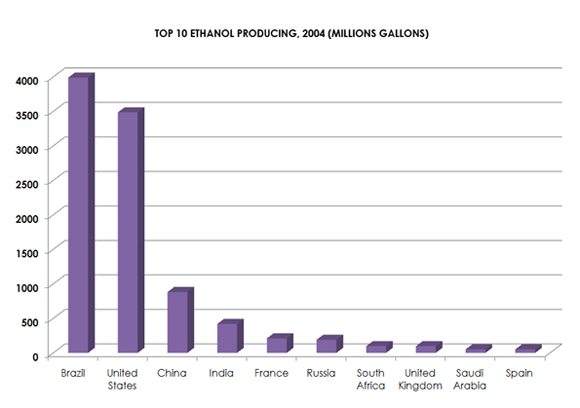Ethanol, a Possible Replacement to Gasoline
10 May, 2007 06:58 pm
Ethanol is not a newly discovered component. It has been used for a long time in industrial chemistry, for example, in solvents, or disinfectants. The innovation resides, however, in the use of ethanol as a biofuel, a possible replacement to gasoline.
Ethanol is produced by fermentation and distillation processes that use sugar plants containing saccharine (red beet, sugar cane) or starch (wheat, corn�).
This type of biofuel is by far the most developed in the world, in contrast to biofuels derived from oil. In Brazil, the production of bioethanol represents 22% of the national fuel demand. In the United States, the second biggest producer of ethanol, the 2005 Energy Policy Act accelerated the use of ethanol by reducing taxes on hybrid cars, using either fuels or biofuels.

In France, at the end of 2006, the government officially launched the E85, a mix of 85% ethanol and 15% gasoline, as a biofuel. It should be available in several hundred gas stations from now until the end of 2007.
In addition, a new process to produce liquid fuels from biomass is being developed: the BTL (�biomass-to-liquid�) process, also called �second generation� biofuel. This solution represents a double advantage: reducing energy dependence, and reducing CO2 emissions. According to many specialists BTL is the future of biofuels.
Translated by Christopher Le Coq
-
12/12/12
Peak Oil is Nonsense Because Theres Enough Gas to Last 250 Years.
-
05/09/12
Threat of Population Surge to "10 Billion" Espoused in London Theatre.
-
05/09/12
Current Commentary: Energy from Nuclear Fusion Realities, Prospects and Fantasies?
-
04/05/12
The Oil Industry's Deceitful Promise of American Energy Independence
-
14/02/12
Shaky Foundations for Offshore Wind Farms







 Read more
Read more